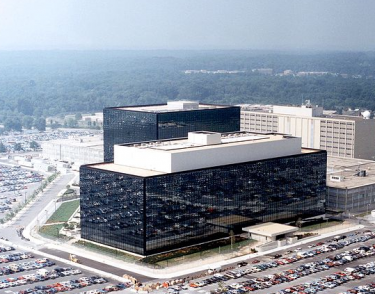Most of this report was researched, written, and edited by Yuqi Chen, Ellery Roberts Biddle [2], and Sarah Myers [3].
Global Voices Advocacy's Netizen Report offers an international snapshot of challenges, victories, and emerging trends in Internet rights around the world. This week's report features a range of responses and reactions to new information about phone and Internet surveillance programs run by the US government.
Surveillance
Edward Snowden, the former National Security Agency (NSA) contractor responsible for leaking information concerning US government surveillance programs, said he has not given [4] any classified information to the Chinese government. His comments were made in an online forum [5] hosted on the Guardian’s website.
According to Der Spiegel, despite the turmoil caused by the leak of details pertaining the NSA’s PRISM program, Germany’s foreign intelligence service (BND) plans to expand their surveillance program [6]with increased funding up to 100 million euros over the next five years. This notwithstanding, German Chancellor Angela Merkel declared [7] that she would push for greater transparency around surveillance practices in talks with US President Barack Obama later this week.
In what UK-based news outlet The Register called “a masterpiece of timing,” a Japanese government security advisory panel, the National Information Security Center, is seeking public consultation [8] on a report [9] that recommends the formation of an agency similar to the NSA to monitor Internet communications.
Sovereigns of Cyberspace
Google published an open letter [10] requesting the US Justice Department allow the company to publish the “number and scope” of national security-related data requests that it receives. Google currently publishes information about law enforcement and copyright takedown requests that it receives in its Transparency Report, [11] but domestic law prevents the company from publishing US national security and Foreign Intelligence Surveillance Act requests.
Privacy
In response to the PRISM program, computer security researcher Moxie Marlinspike [12] wrote a blog post titled We Should All Have Something To Hide [13]. In his article, Moxie points out that many individuals aren’t concerned about surveillance because they think they have nothing to hide, but in fact the volume of information online could make it easy for government officials to find violations of any number of outdated or trivial laws – such as possession of a lobster under a certain size [14].
Netizen Activism
Advocacy groups in the UK wrote an open letter [15] to Prime Minister David Cameron, condemning US government surveillance of British citizens and demanding strong domestic protections for digital privacy.
An international coalition of advocates [16] is urging the UN Human Rights Council to convene a special session to discuss recent revelations concerning US government surveillance programs and to develop recommendations for member states on protecting citizen privacy.
A group of Iranian bloggers and activists wrote a letter [17] to President-elect Hassan Rouhani [18], asking him to improve Internet infrastructure and speed throughout the nation. They also complained of censorship and reminded Rouhani that the Internet was a critical asset in his campaign.
Censorship
The British Board of Film Classification is developing a crowdsourced film rating program [19] that aims to warn users of video content deemed harmful or inappropriate for children. Professional and amateur film posters alike will be able to rate films they put online with the “traffic light system” wherein a green light signals content is suitable for all viewers, amber denotes content appropriate for 12 and up, and red means “adults only”. Rather than filtering content, the system will allow users to make informed choices about videos before choosing to watch them. If successful, the program could provide a strong non-regulatory answer to those seeking to restrict online content in the interest of protecting children.
Thuggery
Ye Haiyan, a gender rights activist and sex worker who led an online protest of sexual assault on children, [20]was detained [21] for a week by police in China's Guangxi Province after using a cleaver to defend herself against a group of individuals who stormed her apartment in response to the campaign.
Copyright
An initial draft of an anti-piracy bill termed “Russian SOPA” [22] was approved [23] by the lower house of Russia’s parliament, the Duma, despite massive protests from individual netizens and major Internet corporations including Yandex, Russia’s biggest online search engine.
A Chinese national was prosecuted for IP theft in a US court for the first time. [24] Xiang Li was arrested in June 2011, in Saipan, and sentenced to 12 years in prison for stealing software from 200 US manufacturers and selling pirated copies of the software for over US$100 million.
Cool Things
Tunisia's Internet Agency, a government entity shrouded in secrecy during the rule of Ben Ali, now houses the #404Lab [25] which will serve as a hub for developers and other tech innovators in Tunis. The lab hosts an openwireless.org [26] connection, making it easy for anyone in the building or nearby to get online.
Google began testing [27] “Project Loon [28],” balloon-based wireless networks that seek to bring fast and affordable Internet connectivity to rural and remote parts of the world.
Publications and Studies
-
The Great Firewall and the Peril of Censorship in Modern China [29] – Yale Journal of International Affairs
-
Spies Without Borders Series: Using Domestic Networks to Spy on the World [30] – Electronic Frontier Foundation
- Online Survival Kit for Journalists [31] – Reporters Without Borders
Subscribe to the Netizen Report by email [32]
For upcoming events related to the future of citizen rights in the digital age, see the Global Voices Events Calendar [33].
